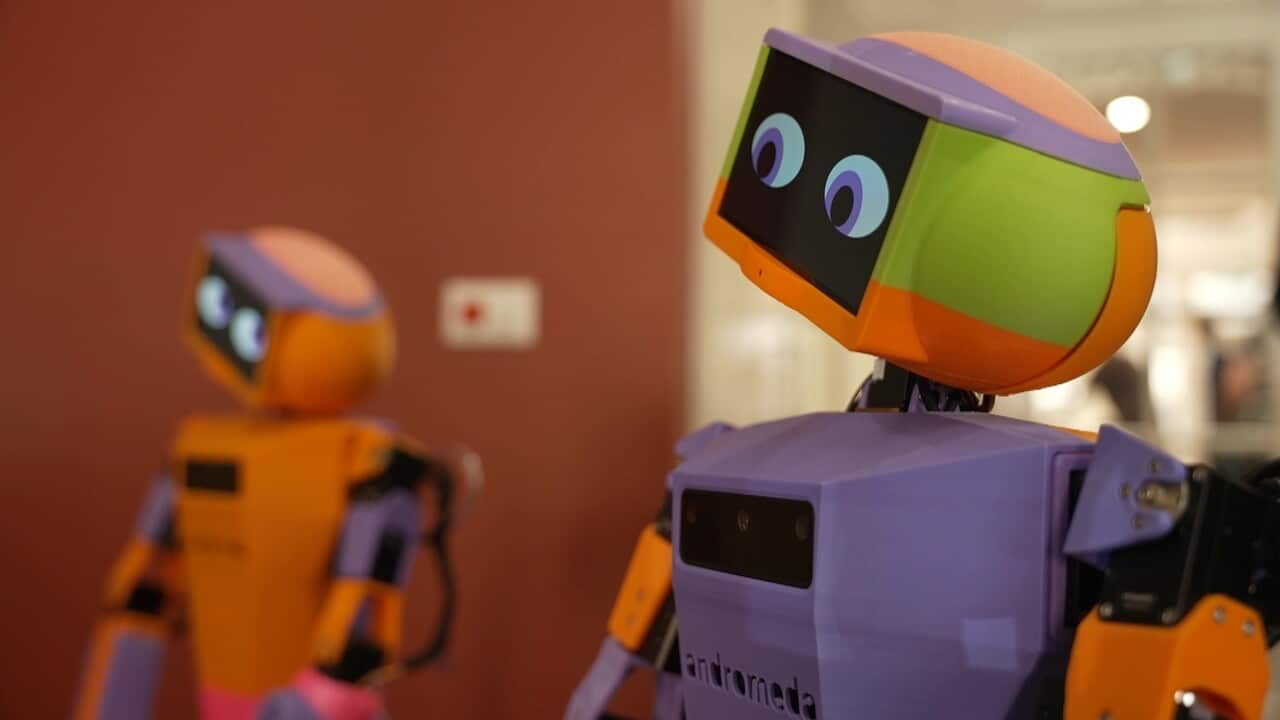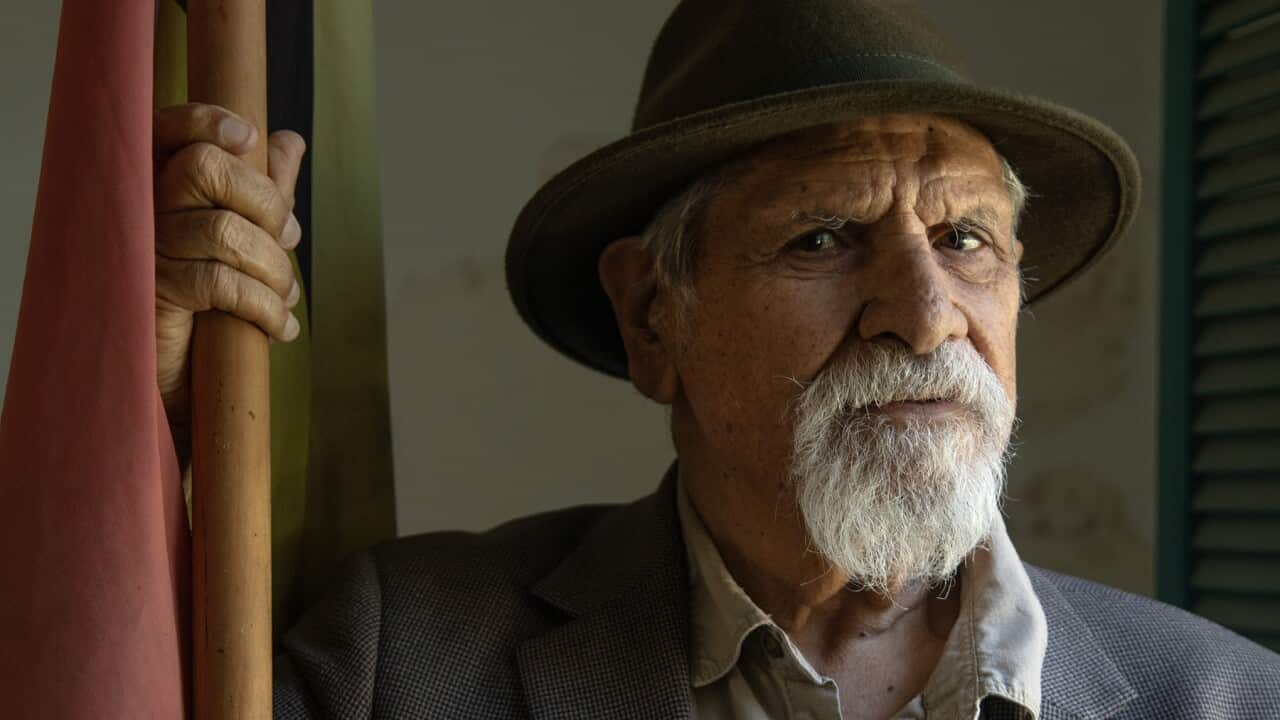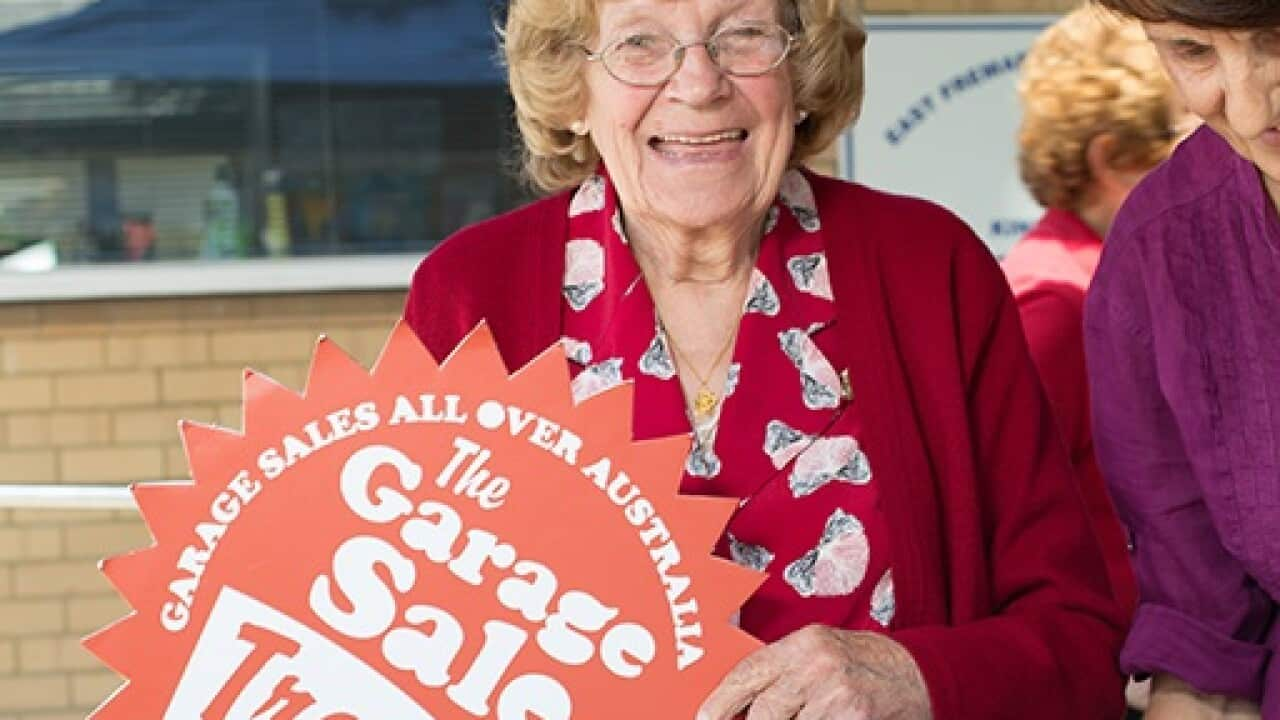Abi è un robot umanoide con un volto amichevole e un talento per le lingue.
È stato fatto uno sforzo per costruire tratti di curiosità ed empatia nella sua programmazione.
E finora i residenti della struttura per anziani Mecwacare Trescowthick di Melbourne sono rimasti piuttosto impressionati.
"Today Abi is doing a very good job. We like Abi a lot. Abi can speak Chinese and speaks very well. We are very happy for this."
La funzione principale del robot umanoide è quella di interagire con i residenti ed è in grado di parlare in quasi 90 lingue.
Questo è importante perché in età avanzata le persone possono tornare ad affidarsi alla modalità di comunicazione con cui si trovano più a loro agio.
Abi utilizza l'intelligenza artificiale per riconoscere i volti, imparare dalle sue interazioni con i residenti e ricordare le conversazioni precedenti.
Anne McCormack, amministratrice delegata del fornitore di servizi di assistenza agli anziani Mecwacare, afferma che sono queste le opzioni che hanno attirato il suo interesse.
"This is the most innovative technology that we've seen that focuses on social isolation and that is Australian made and that evolves and learns with every interaction. We see Abi as a very special augmentation to what we do."
L’ingegnera meccatronica di 24 anni Grace Brown è la mente dietro Abi.
Il compagno umanoide è stato sviluppato per la prima volta tre anni fa, nel bel mezzo delle sfide di isolamento poste dalla pandemia del COVID-19.
"You know, we focus a lot on her mannerisms, her personality, her personality, the way she asks questions. We're kind of at the very very start of a new technological era where we're going to see social humanoid robots proliferate to the point where they're not just in aged care homes but they are in hospitals, education, schools."
Secondo i dati citati dal governo federale, un australiano anziano su cinque soffre di solitudine.
La Commissione reale sul settore della terza età ha identificato la carenza di forza lavoro come una delle principali sfide che il settore deve affrontare, sottolineando le pressioni che continuano a gravare su un personale già sovraccarico di lavoro.
Per questo motivo, la dott.ssa Barbara Barbosa Neves dell'Università di Sydney afferma che, nonostante il moltiplicarsi di esempi di tecnologia di intelligenza artificiale nel settore, la sua crescente adozione non è vista come un sostituto diretto dell'assistenza umana.
"AI can play a positive role in aged care, but only if it's done right, in a way that is collaborative and inclusive and a way that is truly beneficial for older people and our communities. Loneliness has to do with a lack of meaningful social relationships, it's not about quantity of relationships, it's about quality and so we really need to be designing technology that enables authentic connections and it doesn't make it worse."
English
Abi is a humanoid robot with a friendly face and a talent for languages.
An effort has been made to build curiosity and empathetic traits into her programming.
And so far, residents at the Mecwacare Trescowthick aged care facility in Melbourne are pretty impressed.
"Today Abi is doing a very good job. We like Abi a lot. Abi can speak Chinese and speaks very well. We are very happy for this."
The humanoid robot's primary function is interacting with residents, and it has the ability to speak in almost 90 languages.
That's important as in later years, people can revert to relying on the mode of communication they are most comfortable with.
Abi uses artificial intelligence to recognise faces, learn from its interactions with residents and remember previous conversations.
Anne McCormack, the chief executive officer of aged care provider Mecwacare, says it's these possibilities that attracted its interest.
"This is the most innovative technology that we've seen that focuses on social isolation and that is Australian made and that evolves and learns with every interaction. We see Abi as a very special augmentation to what we do."
24-year-old mechatronics engineer Grace Brown is the mind behind Abi.
The humanoid companion was first developed three years ago in the midst of the isolation challenges posed by the COVID-19 pandemic.
"You know, we focus a lot on her mannerisms, her personality, her personality, the way she asks questions. We're kind of at the very very start of a new technological era where we're going to see social humanoid robots proliferate to the point where they're not just in aged care homes but they are in hospitals, education, schools."
Data cited by the federal government, estimates that one in five older Australians experience loneliness.
The aged care royal commission identified workforce shortages as a major challenge facing the sector, emphasising the demands already placed on stretched thin staff.
For that reason, Dr Barbara Barbosa Neves of the University of Sydney says despite more examples of AI technology surfacing in the sector, its increasing adoption is not seen as a direct substitute for human care.
"AI can play a positive role in aged care, but only if it's done right. In a way that is collaborative and inclusive and a way that is truly beneficial for older people and our communities. Loneliness has to do with a lack of meaningful social relationships, it's not about quantity of relationships; it's about quality and so we really need to be designing technology that enables authentic connections and it doesn't make it worse."





